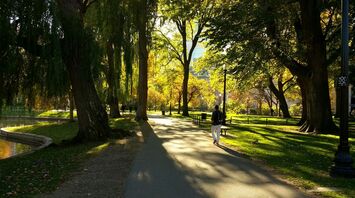Exploring Mindfulness Through Public Gardens

Public gardens are evolving from traditional spaces of passive beauty into dynamic sanctuaries for mindfulness and sustainable living. In an era where the slow flower movement gains momentum, these gardens are becoming crucial in promoting a deeper, more thoughtful engagement with our natural surroundings.
The slow flower movement, spearheaded by figures like Debra Prinzing, aims to reconnect people with the local floral ecosystems. This initiative supports the cultivation and enjoyment of flowers grown locally, reducing reliance on imported blooms that often come with a heavy carbon footprint and a cocktail of chemicals. This movement not only champions sustainability but also enhances our appreciation for the seasonal and diverse beauty of native flora.
Gardens across the globe are incorporating this philosophy into their offerings, transforming into hubs where visitors can engage actively with the environment. For instance, the Portland Japanese Garden in Oregon offers an immersive experience through the ancient practice of shinrin-yoku, or forest bathing, which encourages a sensory connection to the environment, fostering mindfulness and a peaceful mental state.
Moreover, places like the Atlanta Botanical Garden are turning their focus towards edible landscapes, where visitors can learn about sustainable food practices. This garden educates guests on growing their own food and the nutritional benefits of local produce through interactive cooking demonstrations and classes.
In Vail, Colorado, the Betty Ford Alpine Gardens are taking an active role in combating climate change impacts by involving visitors in the Colorado Alpine EcoFlora Project. This initiative uses citizen science to document and preserve alpine plant species that are vulnerable to environmental changes.
Public gardens are also offering unique physical experiences that heighten environmental awareness. The Whiting Forest of Dow Gardens in Midland, Michigan, features the nation’s longest canopy walk, providing a literal elevated perspective on nature’s intricacies. Similarly, the Tyler Texas Rose Garden invites visitors to engage with one of the largest collections of rose bushes in the United States, emphasizing the sensory delights of nature.
These spaces do more than showcase nature; they invite us to become part of it. By participating in these experiences, visitors can cultivate a personal connection with the environment, encouraging sustainable practices that extend beyond the garden gates.
Public gardens are redefining their roles in urban spaces as advocates for ecological awareness and personal well-being. Through the slow flower movement and other mindful practices, these gardens are not just places to visit but spaces to connect, reflect, and learn about the natural world.



















